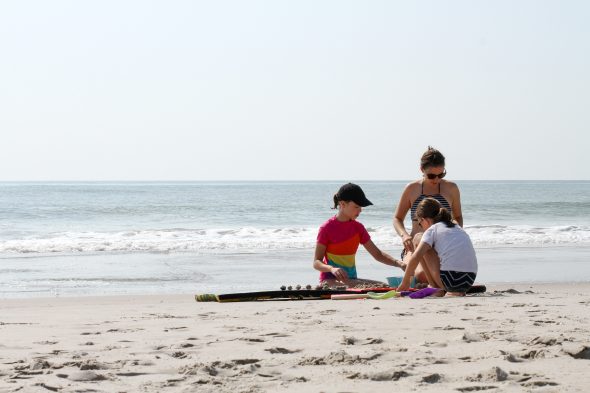I’d like to hear your comments on your balance between “You only live once” (so spend) and needing to be responsible and save.
I’m naturally frugal but sometimes I do have to think “Laura, you only live once — spend it!”
Do you have these moments?
Oh yes, I completely understand what you are saying. My natural inclination is to save, save, save, save, save.
Which is good, at least some of the time.

But this attitude can also be a little unhealthy. Do I really want to get to the end of my life having only save, save, saved?
Money IS a tool, and tools are meant to be used, not just hoarded.
Note: If you, dear reader, are a person who tends to err on the side of spending, then you probably need to focus on the importance of financial responsibility.
(You’re gonna get into financial trouble if your response to every, “Should I spend on this thing?” question is, “Well! You only live once!”

But since Laura and I tend to fail in the other direction, that’s what I’ll talk about.
I’m not saying I have this balance completely figured out, but here are a few things that have helped me.
1. Set aside money specifically for spending.
It’s hard for me to spend money on things that seem unnecessary.
A mortgage payment? Sure!
Groceries? Yep.
The electric bill? Here are my dollars.

But things that aren’t strictly essential are harder for me.
This means that a fun money budget, a vacation budget, or an eating-out-with-friends budget is really helpful.
If the money is already set aside and ear-marked, it’s way easier for me to part with it.
So, if you’d like to live a little more with your money, make a, “You only live once!” fund.
2. Cover your financial responsibilities regularly.
I know it’s easy to feel like you should be putting 100% of your extra money toward becoming more financially secure, but see if you can be slightly less intense about it.
If you are making regular progress toward your financial goals each month, you don’t need to feel bad about putting some money into your, “You only live once!” fund.

And if you do start to feel bad about spending money on some non-essentials, you can remind yourself that you are faithfully working toward your financial goals at the same time.
You can do both!
3. Look at the big picture.
Instead of getting too focused on how much you want to save right now, think about the big picture of what you want your life to be like.
Twenty years in the future, when you look back, what do you want to see?
I imagine that you want to see responsibility, but that you also want to see fun things like vacations, dinners with friends, a hobby purchase, a great pair of shoes, and so on.

___________________
Fellow die-hard frugals, what helps you loose your purse strings a little?
P.S. After I wrote this, I realized that my main points could also apply if you are prone to too much fun spending!
Make sure you cover your financial responsibilities, set aside specific amounts for fun spending (so that it doesn’t get out of hand), and look at the big picture to make sure there’s enough responsibility mixed in with the fun.

Amanda Ashley
Monday 22nd of April 2019
I find it hard to loosen up and spend. I do sometimes and then I feel buyers remorse and feel guilty! It's so hard to balance. I want to make memories with my kids and I also want to get ahead financially and sometimes I can't figure out which one is more important!
Mary
Saturday 20th of April 2019
I am a saver married to another saver and line items help a lot. Looking at my budget and saying "Oh, there's an extra $150 in the personal care budget--go get your hair cut" is easier than justifying why I DON'T need to spend it.
I realize this is a bit of a tangent, but retirement calculators never seem to factor frugality in--my husband is a high earner so it says we need a ridiculous amount of money monthly in retirement. Our house will be paid off by then and short of spending basically all our time traveling I cannot even fathom what we would do with our current income (which pays off our 15 year mortgage and saves for our kids college as well as retirement)
Bobi
Thursday 18th of April 2019
I'm a little late to this discussion but after watching many elderly family members spend their entire life savings on nursing home care while non-savers "enjoy" (NOT) the same nursing home experience at government expense, I don't necessarily advocate no savings but do advocate spending to actually enjoy life while you can instead of enjoying the fruits of your labor in a nursing home.
Laura
Thursday 18th of April 2019
Gosh, I have seen so many people that have saved, saved, saved, to the point that they then are then too old or ill to enjoy it, my dad included. Turned out he was very wealthy, but became ill and that was that. My attitude is spend on things you love, that bring you joy (this includes my grown sons) but always makes sure you have that little pot of money that will save the day if it comes to it.
Judy
Wednesday 17th of April 2019
My husband and I are both pretty frugal. I have an easier time spending than he does. As an airline family travel was always at the top of our list, but we also were pretty frugal about that. We wanted the experiences for our daughters. We've been mortgage free since our 40's. My husband put my 2 daughters and me through college. Retirement savings was always at the top of our list even when we thought we couldn't afford it. Now in our 70's we are thankful for our frugal lifestyle, our travels, and our investment incomes. We now have extra money and a commitment to save for our 2 grandchildren's college educations. We are not grandparents who buy lots of toys but we do provide experiences and consumable type gifts. Basically we are still very frugal, but able to splurge if we feel like it. Our wants and needs are pretty few. We also are really glad we traveled when we were younger because we'd mostly rather stay home now.